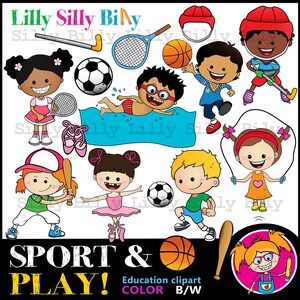In a matter of weeks, students in primary and secondary school would be resuming a new session in September. I can imagine the excitement to move higher in classes and a bit of uncertainty, especially for those going to a new school.
When I was going to secondary school, I remember feeling nervous and how new students in my new class would treat me. Although, I was hoping to do more physical activities like running and football. Personally, tennis would have been it for me, given my background- my brothers play tennis and I have the opportunity to play alongside them if I want to.
Alas, that would not be the case. If I choose to focus on tennis, then I believe my education would suffer. Plus I was more for education than sports anyway. So, I was not bothered when my school lacked sporting facilities.
Then another thing happened. I am becoming more aware of myself- puberty is happening to me. I remember a classmate talking loudly when she discovered I have started wearing a bra in JSS one- I was mortified.
Back home, my friends and I understood the dynamics of our bodies, and we still engaged in sports and games without feeling overtly conscious of our bodies. I played football, I like running, and I enjoyed skipping and climbing trees.
I would later discover that my classmates were not opportune to grow up in the kind of environment I grew up in. I grew up in Railway Compound- spacious, with trees, fields, diverse people, flowers, plants and many other things. I used to imagine Railway Compound to be the Garden of Eden whenever I read my little children's bible then.
Having realised the difference in background and development (puberty), I knew the problem was not from me, but I was still shy. A day came when the school decided they wanted to start students up on athletics. I was not interested. But I was compelled to take part in it.
I did but did not perform well. The games master somehow got to find out I was a good runner in primary school and he reported me to the vice-principal who decided I was stubborn and must ensure I take part and win. LOL. I still performed subpar. They eventually gave up on me.
Later on in life, I came to some realisation about my not taking part in games:
1. I am very aware of the changes in my body
2. In primary school, our games masters included male and female teachers who motivated us and gave us incentives -sweets and biscuits- that gingered us to want to do well
3. My primary school games masters advised us on what to wear for practice.
4. Our parents were informed and encouraged us to participate
5. Even as children, we were involved in planning activities. We were involved in marking the perimeter of the field and carrying kits
Many other factors encouraged me to take part in activities back in primary school. Those were lacking in secondary school.
Sports and games most recently are being celebrated around the world, particularly in Nigeria, following the performances of the Super Falcons at AFCON and athletes at the Commonwealth Games. It shows that with the right support, people would take part in sports and excel for themselves and their country.
However, with the current realities in Nigeria, most people would rather choose education over sports. Who says sports and education cannot be done side-by-side?
Serena Williams recently announced her retirement and plan after the US Open and was met with much applause for record-breaking performances in her lawn tennis career. What is appealing about her announcement is her gradual transition to venture capital. Despite her stellar tennis career, the record breaker is already looking into something different. Another career footballer Wilfred Ndidi also announced he bagged a degree at De Monfort University while playing for Leicester. Yet again, former Super Falcon Ini-Abasi Umotong also announced her retirement from football. Umotong is a graduate of Economics and has an MBA. We have also seen many players succeeding in sports and other fields, using skills and experience gained from participating in sports.
These people were able to succeed in their quest for education and sports. Given, not everyone might excel in school or sports at the same time, people should be allowed to know that they can actually do well in school and creative activities simultaneously. We can also take advantage of the fitness craze among adults to key into sports and games.
As school resumes in September, government, policymakers, sports officials, social entrepreneurs in the sports sector, counsellors, health practitioners, parents, beneficiaries, teachers and relevant stakeholders should look into how schooling and games can be married together to create more opportunities for children and students in the future; while taking into cognizance diversity, representation and inclusion. Sports and play have been touted to prompt quality education, Australia is a good example. As such, we must localise our sports policy to conform with the international standard which must not only be formulated but implemented and possibly backed by legislation for posterity's sake.
Our children should go back to school to see more innovation and hope for the future. And the creative sector promises a bright future for all if we decide to start now.










No comments:
Post a Comment